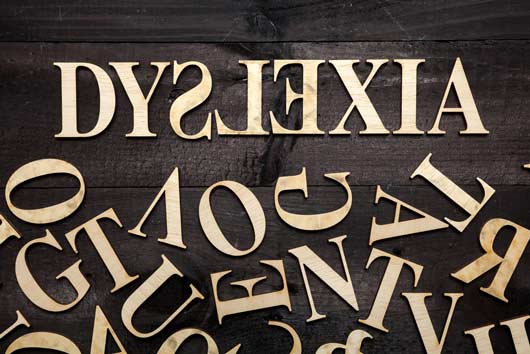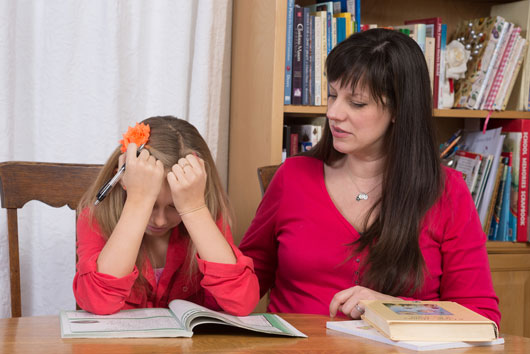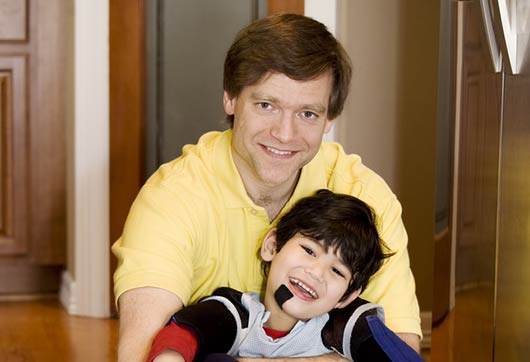
When you become a parent it is terrifying. Even if everything goes smoothly from birth to the teenage years (and beyond) you are perpetually scared that something will go wrong. And sure enough, something will go wrong. It might be something small like a bump, a bruise, a broken bone or a broken heart, or it might be something bigger… But how can we truly pick up on the signs of dyslexia? Dyslexia is a common problem among children; in fact, it is the most common learning disability among students today. 1 in 5 people suffer from dyslexia.
You’ve probably heard about dyslexia. But what exactly is this condition? According to the National Center for Learning Disabilities, dyslexia is “a common condition that affects the way the brain processes written and spoken language.” It can affect someone’s ability to read, write, or even speak–anything involving how one comprehends and communicates the spoken language.
It’s extremely important to note that dyslexia is not a disease; it’s also not an indicator that someone is lazy or stupid and it is definitely not a sign that your child is doomed to fail. On the flip side, some very successful people have dyslexia. Do the names Walt Disney, Robin Williams, Albert Einstein and Pablo Picasso mean anything to you? Because they were creative and intellectual geniuses who just so happened to also be dyslexic. Yes, dyslexia is a condition that most certainly must be addressed, but it is has nothing to do with how smart someone is or how successful they can and will become. Got it?
Read Related: Does My Child Have a Learning Disability?

Ok, onto the important stuff: when it comes to dyslexia in children, how do you know if your child has it? What are the signs of dyslexia? What do you look for? Like so many developmental disorders, the signs may not be obvious and they may appear gradually. Some people suffer more severely than others, and some children display their issues later in life while others experience difficulty early on. There is no hard and fast rule as to when you will notice signs of dyslexia. That’s the bad (ish) news, especially if you’re a parent who likes clear-cut answers and guidelines. The good news is that there are warning signs to keep an eye on.
With dyslexia in children, here are a few questions to consider…does your child:
– Seem to be delayed in speech development?
– Hate reading out loud?
– Have trouble recognizing letters or basic words?
– Seem frustrated by basic homework?
– Struggle to express him or herself clearly?
– Have trouble finding the right words in conversations?
– Fail to use proper grammar?
– Have trouble finishing tests on time?
– Exhibit extremely messy handwriting? (More than your average sloppy kid.)
These are all signs of dyslexia. Notice we said might be, because many of these behavioral observations might just be your child developing at his or her own pace. If your child messes up his usage of they’re and their don’t freak out. That being said, if you are nodding your head to many of these potential signs of dyslexia and you are concerned, don’t keep your feelings to yourself. According to the Yale Center for Dyslexia and Creativity, “the human brain is resilient, but there is no question that early intervention and treatment bring about more positive change at a faster pace than an intervention provided to an older child.” The longer you wait to seek expert advice the more valuable learning time your child will lose, and early reading practice is an essential part of developing communication skills and vocabulary for later in life.

Bottom line: if you are at all concerned better safe than sorry; ask for help. Dyslexia is not a disease so there is no treatment, but there are things you can do to help your child overcome any learning obstacles. There are teaching tools and expert tips to help your child essentially re-train his or her brain and to learn to how to navigate the language world. And let’s not forget that dyslexia can cause issues with self-esteem as much as it can cause reading and writing problems, so as a parent whose number one job is to support your children and make sure they are healthy, safe and happy, you need to take action and you need to do it now.











